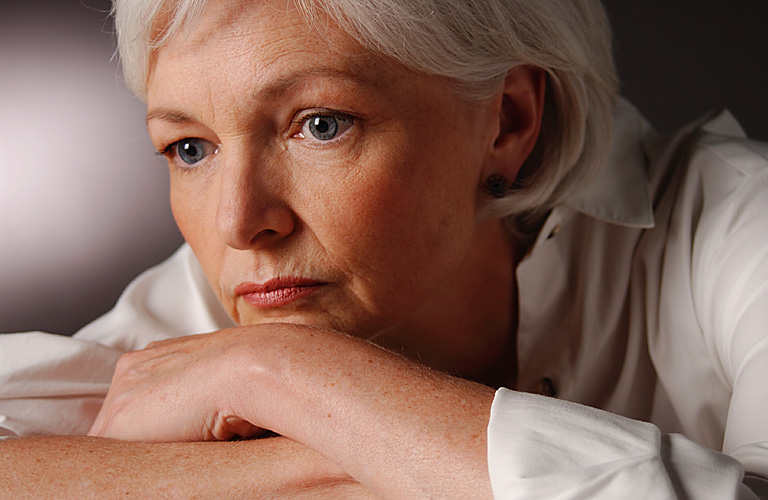What Does Menopause Feel Like?

Menopause is an inevitable period of each and every woman’s life. It takes place right after the reproductive period and is caused by incapability of ovaries to continue producing female hormones. Namely, the ovaries cease with their hormonal function and the entire body suffers a whole range of changes which may vary in their intensity quite a lot. Still, there are menopause symptoms that almost every woman experiences once entering this new chapter of her life.
It is essential to understand that all the changes in a woman’s body during menopause actually stem from a drop in the level of female hormones estrogen and progesterone. An optimal level of the two is required for ovulation. Moreover, it is proven that if progesterone and estrogen are balanced and present in sufficient amounts, many more functions and processes in the body are kept under control.
As far as the beginning of menopause is concerned, it occurs in the form of perimenopause, when the levels of progesterone and estrogen gradually decrease and menopause symptoms begin but are never as strong as they become when ovaries completely cease the production of the two hormones. During perimenopause there is occasional monthly bleeding while in menopause the complete absence of menses becomes permanent and accompanying symptoms may be rather unpleasant.
As it has already been mentioned, the beginning of menopause i.e. the period of perimenopause is characterized by irregular bleeding. The pattern of monthly bleeding varies a lot. So, there might be a complete absence of menses for a few months followed by heavy menstrual bleeding. In some cases, a woman may notice blood clots leaving her body and be rather terrified. On the other hand, sporadic instances of light bleeding are another characteristic of this transitional period.
Furthermore, the lack of progesterone and estrogen does not allow a woman to conceive, or to sustain pregnancy, even if an accidentally released egg has been fertilized. As a matter of fact, the very act of copulation might become rather unpleasant and painful because of vaginal dryness, one of many menopause symptoms. Vaginal dryness is closely connected with a drop in estrogen levels. As a result, the woman might lose interest in sex and become reluctant because the intercourse is painful rather than enjoyable.
Hot flashes along with night sweats are yet additional problems a menopausal woman faces. They also originate from hormonal imbalance. While some women experience no such problems, other may have severe hot flashes and require proper treatment. Hormonal changes in menopause additionally trigger certain emotional menopause symptoms. For instance, there may be sudden anger or anxiety attacks, repeated emotional outbursts along with additional mood changes, all of which had not existed before menopause begun.
And finally, by entering menopause a woman also enters a period of life when she becomes more prone to osteoporosis. Although not all menopausal women suffer from softening of bones, most of them do require calcium supplements or even medications which improve the strength of their bones and prevent fractures. Fortunately, modern medicine has come up with several solutions to menopause induced issues, some of which are completely natural while others represent specific medications. Both reduce intolerable symptoms or eradicate them completely.





